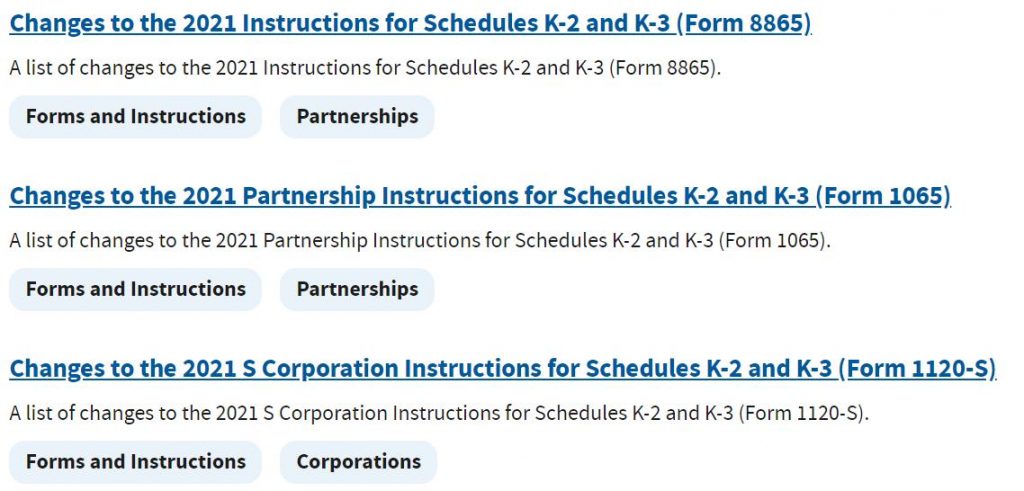How Does Tax Planning Minimize Small Business Taxes?
Small business is the foundation of the U.S. economy, and the typical small business owner works long hours with few days off to reach success. Success for a business is defined by profitability that enriches the lives of the owners, shareholders, and employees, and funds the growth of the business.
It doesn’t matter what type of business you’re in, as profits are the goal. Any expense or activity that reduces profits is working against the growth of the business. Many expenses are necessary, such as products, materials, labor, and facilities that are critical to conducting business. To do business in this great American economy also includes taxes on the expense side of the ledger. What too many business owners don’t understand is the amount of control they have over their taxes if they just do some basic small business tax planning.
What is small business tax planning?
When’s the best time to invest in new assets or major equipment for your business? Should you sponsor and administer a retirement plan for employees? Is it better to lease or buy company vehicles? How should you depreciate major equipment and real estate? At every stage of your business growth, you may need regular assessments into your business structure, such as whether it’s best to operate and file as a sole proprietorship, S-Corporation, LLC, or full corporation?
Those are just a few of the many questions business owners ask themselves, and the decisions can make a huge difference in how much your business pays in taxes. Many business owners spend a lot of time and effort shopping vendors for cost cuts, while ignoring tax strategies in their overall long-term goals. Tax planning helps you develop a sound strategy for growth, forecast major purchases, and keep more money in your business. Taxes is not an exciting topic to sit around and discuss with friends. However, it’s just as important (maybe more) to your bottom line as marketing, sales, production, and customer service.
Tax Planning is a Moving Target

The image above illustrates just a slice of one of the many pages on IRS.gov using the search phrase “rule changes.” There were 135 publications that discussed rule changes for business. Passage of laws like the Tax Cuts and Jobs Act, as well as internal IRS rule changes, result in a constant flow of publications like these.
The importance of this information is that you should start with a small business tax plan, but work closely with your tax consultants or accounting professionals on a constant basis to keep up with rule changes and modify your tax plan as needed.
Take it from the Small Business Administration that says “For many small business owners, thinking about taxes occurs only twice a year … when returns are being prepared and perhaps at the end of the year. This is a mistake.”
Pieces of the Small Business Tax Plan
Every business is unique, though they do fall into categories by the type of business. Every business owner is unique as well. So, tax planning will differ a bit for each business and owner.
But there are pieces of the tax planning puzzle that apply to most, if not all, small businesses. Tax planning for small business can save a lot of money in taxes, impacting your bottom line. Here are the most common pieces of the puzzle for many businesses.
1. Entity Formation or Business Structure
Most small businesses structures begin as sole proprietorships or partnerships. While easiest to set up and inexpensive to operate, a sole proprietorship is generally not the best business structure for minimizing taxes. Getting this right when the business is starting is important, but it also comes into play as the business grows and as funding and liability become bigger factors. The IRS explains the different business structures, and your best approach is to understand the basics and work with an attorney and/or licensed tax professional to factor your individual circumstances.
The choice of business structure influences every aspect of the business, from day-to-day operations to taxes and protection of your personal assets. As you evaluate your needs and which business structure might be best, consider the following:
- Raising Capital – As the business grows, it may need to seek capital to fund expansion or new projects. For the sole proprietor or pass-through entity, this means personal credit and assets are considered and often needed as collateral. It often impacts your personal credit and you’re generally on the hook personally if something goes wrong. It’s often easier and limits your individual risk to operate as a limited liability company or corporation.
- Tax Treatment – C-Corporations are “double-taxed.” This means that the corporation pays taxes on profits and then the stockholders pay taxes again on that money when it is distributed as earnings or dividends. Sole proprietorships, single-member limited liability companies (LLCs), S-Corps, and Partnerships, are considered “pass-through” entities, and taxes are only paid once on profits when they are distributed. Taxes on pass-through entities are paid on personal returns of the owners, usually included in a Schedule C. Choosing an entity and structure changes taxation, so choose well.
- Liability Protection – Sole proprietors and owners in partnerships incur liability for the operations and debts of the business. Their personal assets are at risk from lawsuits and debt collection. Stockholders in corporations do not put their personal assets at risk. The selection of a business entity structure can be critical for asset protection.
In small business tax planning, not only the current or startup business structure is considered, but as the business grows the need to change the structure could be involved.
2. Income Deferral or Acceleration
Whether to defer or accelerate income is something to consider every tax year. Depending on your current tax year’s projected income, expenses, and profit before the end of the year, the business may want to defer or accelerate income.
Income Deferral
Suppose that you are having a great year, lots of income, profits are going to be great, but that means taxes will be higher as well. If you invoice customers or clients, can you defer invoicing to push their payments and income into the following year for cash basis accounting? For accrual basis accounting, can you push some invoicing into the next tax year?
Income Acceleration
Income acceleration can be a wise strategy in years with high depreciation deductions as an example. Take advantage of high depreciation years or years with large purchases to accelerate income. Offer discounts for speedy payment or use other strategies to induce customers or clients to pay sooner. For accrual accounting, speed up invoicing to get it on the books by the end of the year.
3. Major Purchases and Depreciation Methods
You should be regularly planning for expansion, renovations, and production improvement. In doing so, consider the cost of major equipment, real estate, or vehicles. Timing of the purchases and the choice of the allowed method of depreciation can make a big difference in taxes owed.
Pushing major purchases into high income years, as well as allowable accelerated depreciation methods, can save you a ton of money in taxes. Pushing depreciation into future years can help to reduce taxes in higher income years expected in the future.
4. Retirement Planning
Retirement planning is not just for owners. Employee retirement plans are not only an acquisition and retention tool for the best employees, as they can save the business money in taxes over time. The owners can set up retirement plans with tax free contributions, or Roth plans with after-tax contributions but with tax free withdrawals in retirement. The IRS provides detailed information for small business retirement plans.
5. Regulations Monitoring & Plan Changes
You can minimize your taxes by closely monitor the many changes in tax laws and IRS rules each year. The many changes in the Tax Cuts and Jobs Act and the massive business aid during the COVID pandemic are examples of new and changed rules that granted tax relief to small business, but only if the business knew about them and took the right actions to take advantage. In case you are not sure how many changes there can be in a single tax year, the IRS publication titled Post-Release Changes to Tax Forms, Instructions, and Publications can be an eye-opener for you. It is a long scroll!
6. Compliance and Audit Avoidance
Keeping up with reporting, due dates, and required tax deposits are all critical in small business tax planning. While just doing what is required may not cut taxes due, it can save the business large painful bills for penalties and interest.
Planning can be as simple as one or two meetings every year with your tax professionals or accountants to discuss what the IRS is targeting that tax year and how to avoid scrutiny. Home office and vehicle deductions are examples of areas where a small business can get into trouble without any intention to violate the rules. Of course, no matter how well everything is done, you could still get a random audit notice, so follow the rules and be prepared.
Tips for Your Business Tax Planning
Maximizing tax deductions and credits in your business isn’t rocket science. If you want to reduce your taxes owed and stay out of audit problems, you should be meeting regularly with tax professionals, developing your plan, and consistently monitoring and adjusting. Stick with the plan but meet regularly to discuss the changing tax world and what you can do to keep more of your hard-earned money.

